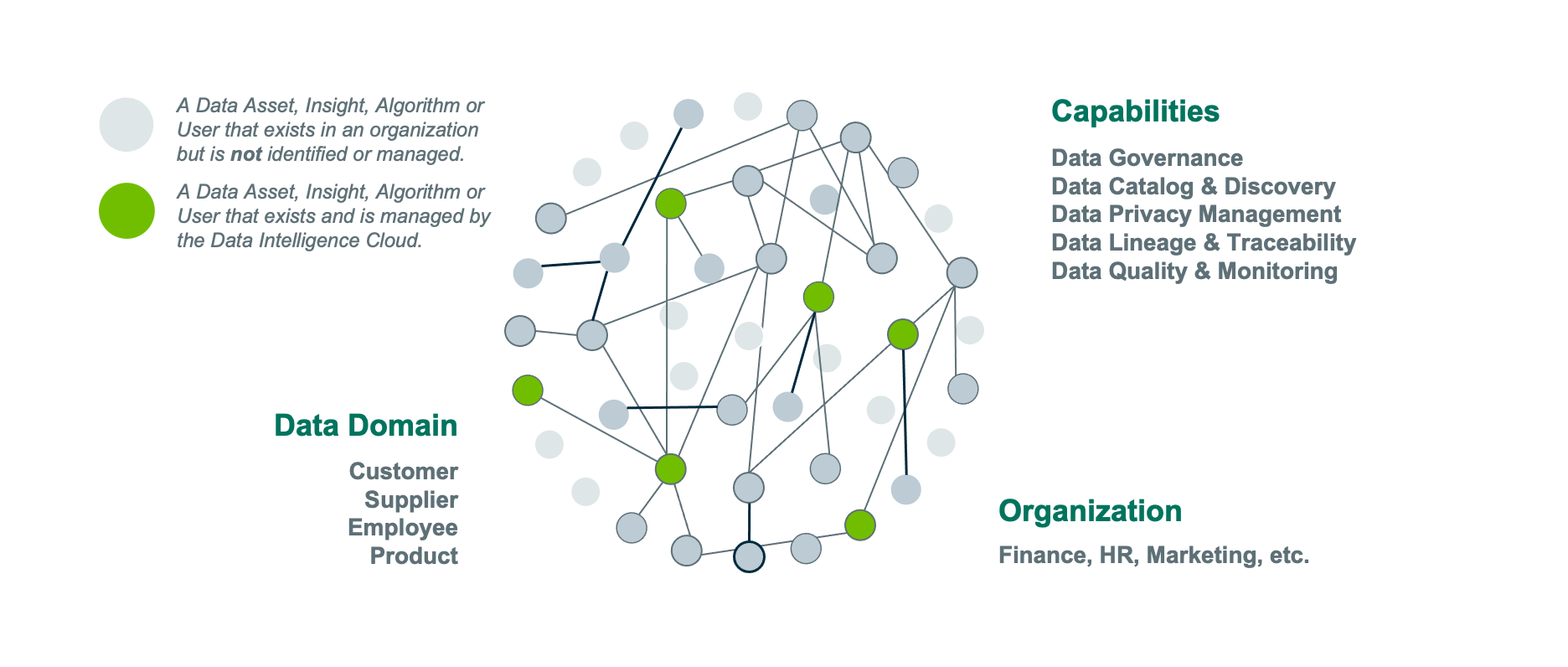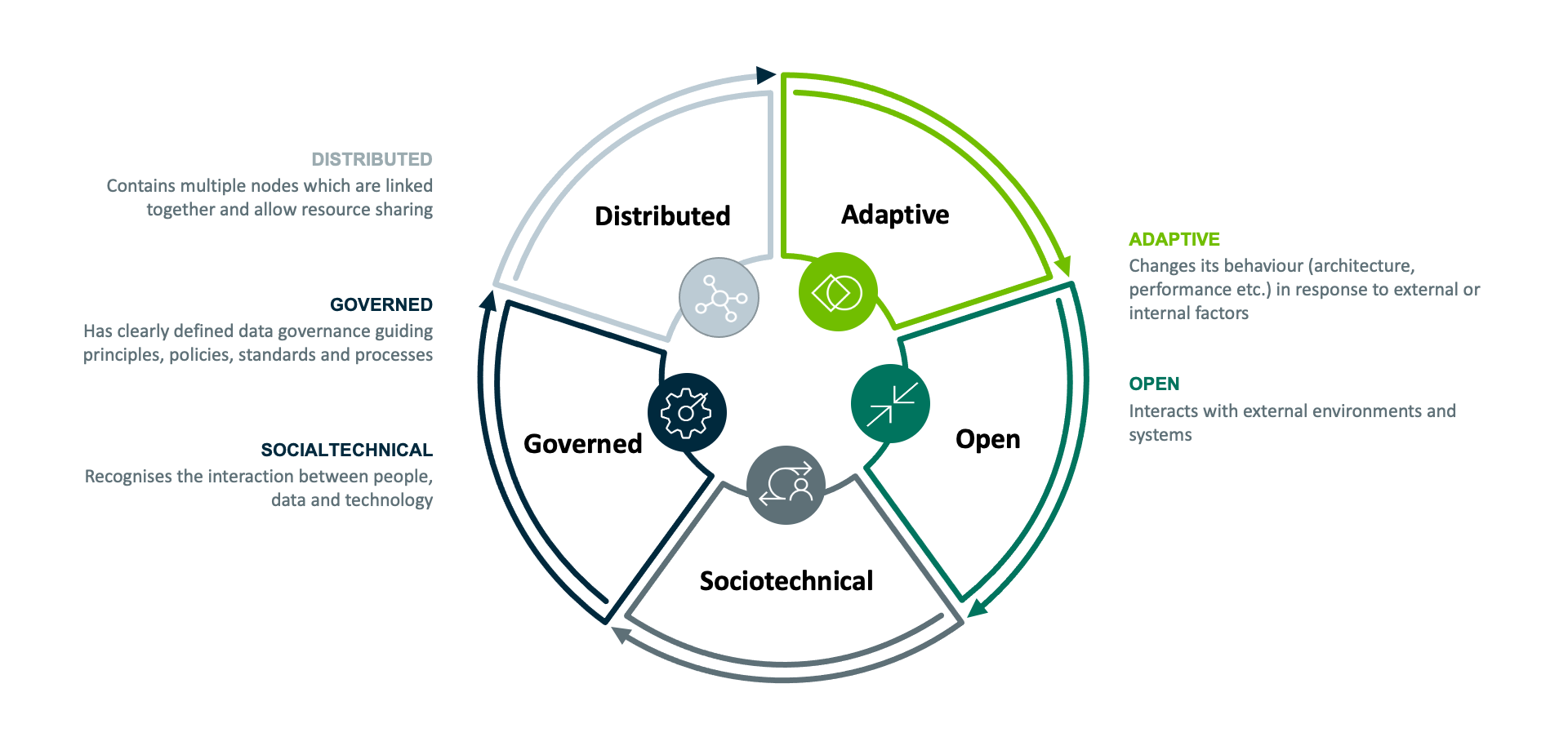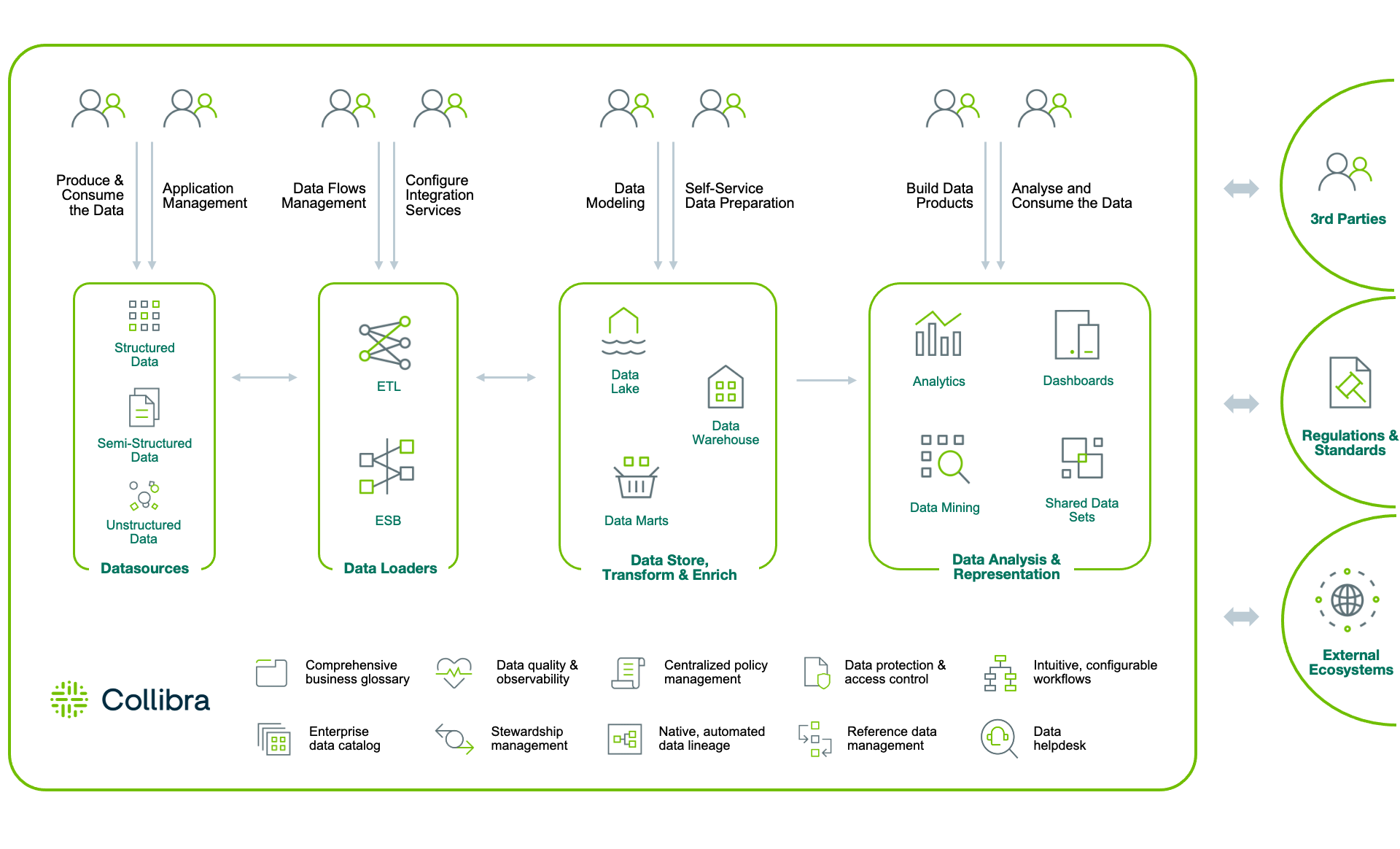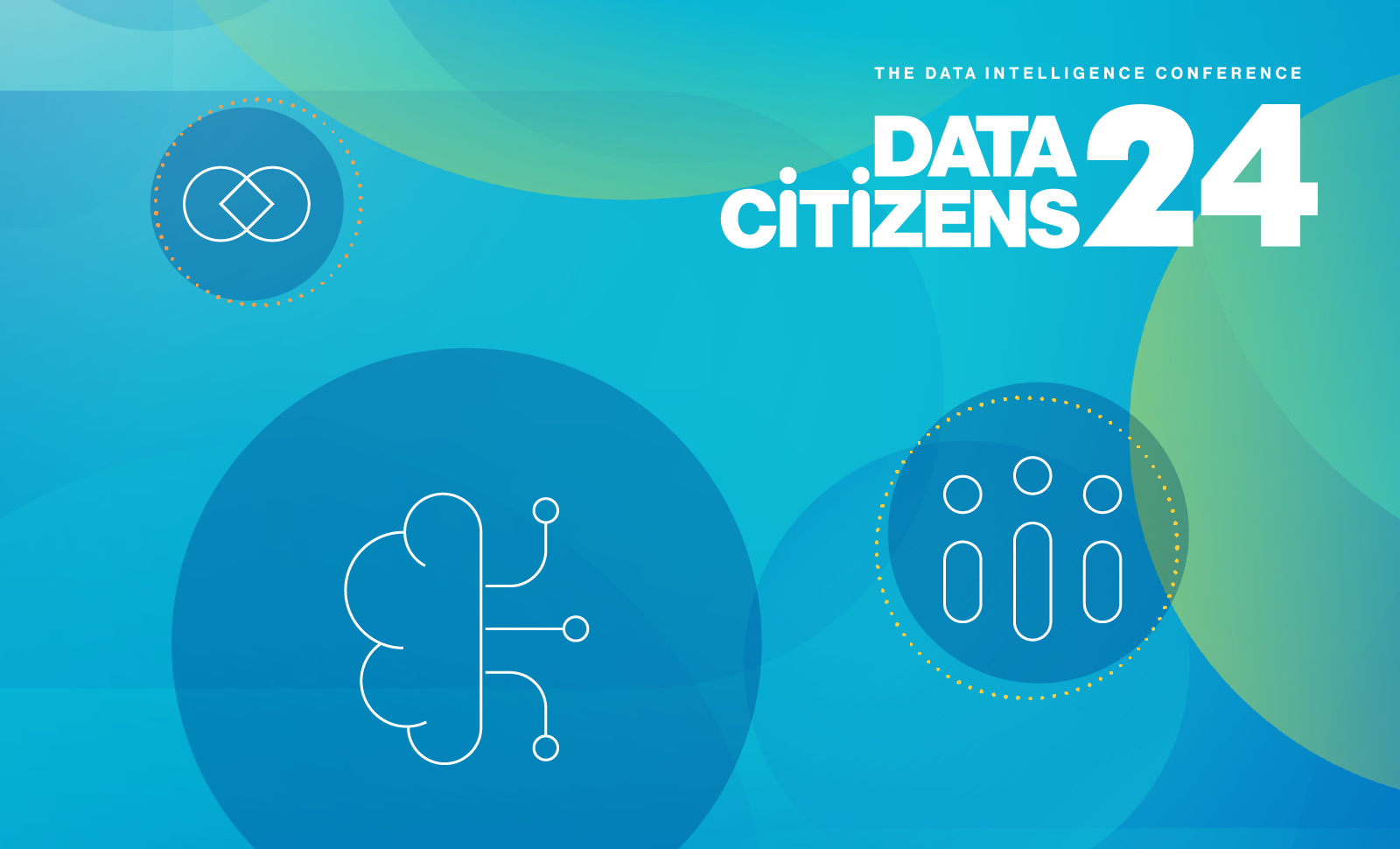The times, they are a-changin.’ Bob Dylan’s lyric has always identified a fundamental truth about life. But it seems like the last few pandemic-dominated years have accelerated everything, especially for modern enterprises deluged with data.
A few years ago we might have felt that our business was safe if we worked to find balance among the stakeholders, suppliers, business partners, regulators, service providers, and other stakeholders all moving at different speeds, with different technologies, and often competing objectives.
It should be no surprise that technology-related priorities are growing in importance for CEOs and senior business executives since 2020, according to Gartner.
The pandemic was a catalyst for much of the recent change in our professional lives, accelerating the end of old models and old methods that were overturned as our society shifted even more time and attention to digital.
Companies are updating their technology landscape and data architecture to cope with these new challenges. And as they do, the inevitable realization is that data is more important than ever — and, as a result, there is more and more scrutiny on data quality. And not just to drive better decision-making, but also to ensure regulatory compliance in an increasingly regulated global environment.
Surviving the data deluge
By 2025, IDC predicts the datasphere will consist of 32 zettabytes (ZB) (1). That’s a lot of data.
And it’s not just coming from IT anymore. It’s coming from across the business.
And the cloud won’t solve the problem of the data deluge. In fact, at the end of 2021, a US financial regulator with 200+ petabytes of storage and 20-30% y/y growth has already pushed their cloud MPP databases beyond compute and storage capacities (2).
They are the first but not the last company that will deal with cloud limits in the future.
Companies are also concerned and closely tracking their organizational effect on the environment. The amount of data generated and stored in the cloud impacts the environment massively. Just imagine, storing one terabyte of information on the cloud creates a carbon footprint (CO2) equivalent to 2 tons annually, according to US electricity rates (3).
A system of record for data
The pressure on IT leaders is now greater than ever — and most leaders are reviewing their approach to how they work with data, including using data intelligence solutions like Collibra Data Intelligence Cloud to improve collaboration, connections, interoperability, and sharing processes around the data.
As a system of record for data, Collibra streamlines enterprise data by providing data citizens comprehensive visibility of all available data with full business context. The result: data professionals can analyse, govern and share data better and faster.
Why data intelligence is more important than ever
Digital ecosystems are a group of interconnected information technology resources that can function as a unit.
Most importantly, data intelligence connects the right data, insights and algorithms to data citizens. A data intelligence solution clearly defines principles, policies, standards, and processes that data citizens should follow and use when they work with data.

Researching data intelligence solutions? Here are some important considerations
When researching data intelligence solutions, you’ll want to recognize that a data intelligence ecosystem consists of:
- All the tools/platforms linked together through the integration processes
- All the tools/platforms consume or share data with each other
- The data can be received from outside or generated within the ecosystem
- The people who interact with the technologies and the data, play a key role in data production or consumption
- People also influence the quantity and quality of data through analysis and generation of new combinations of data (data sets) that can help answer questions and make decisions
Another important consideration is data intelligence ecosystems are controlled by external and internal factors, including:
- Market transformation, technology and standards evolution, regulatory requirements, or even epidemics that impact the overall structure of an ecosystem but are not themselves influenced by the ecosystem
- Internal factors such as cost management, risk management, BAU development, strategic changes, and a necessity in new data. Internal factors not only control ecosystem processes but are also controlled by them
The fact is your data ecosystem will evolve when needed. But if it’s not managed effectively, it will collapse without adapting to new factors and constant business and technology changes.
Simply adding data intelligence to your technology landscape won’t change your organization immediately. You need to create a cultural shift too. You need to change the way people work with your data.
To foster a mature data intelligence culture in your organization, it’s critical to ensure that your data ecosystem has clearly defined data principles, policies, standards, and guidelines that can guide your enterprise as it evolves. This foundation will support a framework for expected behavior and decision-making when it comes to data.
The properties of a data intelligence ecosystem
We can define the properties of a data intelligence ecosystem as:
- Distributed: contains multiple nodes that are linked together and allow resource sharing
- Adaptive: changes behavior (architecture, performance etc.) in response to external or internal factors
- Open: interacts with external environments and systems
- Socio-technical: recognizes the interaction between people, data, and technology
- Governed: has clearly defined data governance guiding principles, policies, standards and processes

The core of the data intelligence platform
So, what do you need to build your data intelligence ecosystem?
The key piece of the data intelligence ecosystem is the data intelligence platform. It provides the ability to find, understand, trust and access data across all existing siloed sources, tools, processes and modern cloud architectures from one centralized location.
Data intelligence platforms change the way organizations use data and remove any existing barriers between people and data.
With time, your data intelligence platform will become business-critical and assist people from every area of your organization with data-related tasks.

The benefits of a data intelligence platform
With a data intelligence platform, you can streamline the process of working with data through:
- Establishing a unified view of all data (without moving data) and information assets with full business context
- Building a data governance foundation to manage and organize disparate processes and create a shared understanding of data
- Ensuring compliant access of trusted data and information assets for all users
It may sound difficult or even impossible to establish data intelligence at your enterprise. However, the proven success across industries and geographies in 700+ companies that are Collibra customers suggests otherwise. And organizations who have already started to build the data intelligence ecosystem and implemented data intelligence platform have realized fantastic outcomes, including:
- 23% increase in governance teams productivity
- 26% increase in BI and analyst team productivity
- 69% reduction in time to locate data
- 5.1X ROI over 3 years
- Avoidance of hefty fines (BCBS 239, CCAR, HIPAA, GDPR)
- 2,000 hours saved in cloud migration efforts
(Source: Quantifying the ROI of your data initiative, IDC)
Remember: You’re not trying to boil the ocean by implementing a data intelligence platform. We recommend “divide and conquer” — start small and focus on prioritized business goals. Then deploy product capabilities incrementally as needed to realize more value. Finally, you can scale your successful data intelligence operating model to deliver fully self-service enablement. With this plan, you can start seeing real business value within 2-6 weeks.
Ready for data intelligence?
AI. 5G. Chat-GPT. It is a time of great change. And this will drive new technologies, new experiences, and require new data structures. The complexities your business faces in today’s data-driven world won’t get any easier. In fact, they are likely to get more complex.
A data intelligence platform like Collibra can help your enterprise become united by data across all your systems, processes and tools. A single system of engagement for data across the modern enterprise can help your enterprise re-imagine how your enterprise works with data.
________________________________________________________________________________
1 Source: IDC 2018, Tech Jury forecast, 2021
2 Source: https://www.okera.com/wp-content/uploads/2021/11/Financial-Serivices-Case-Study.pdf
3 Source – https://www.climateimpact.com




